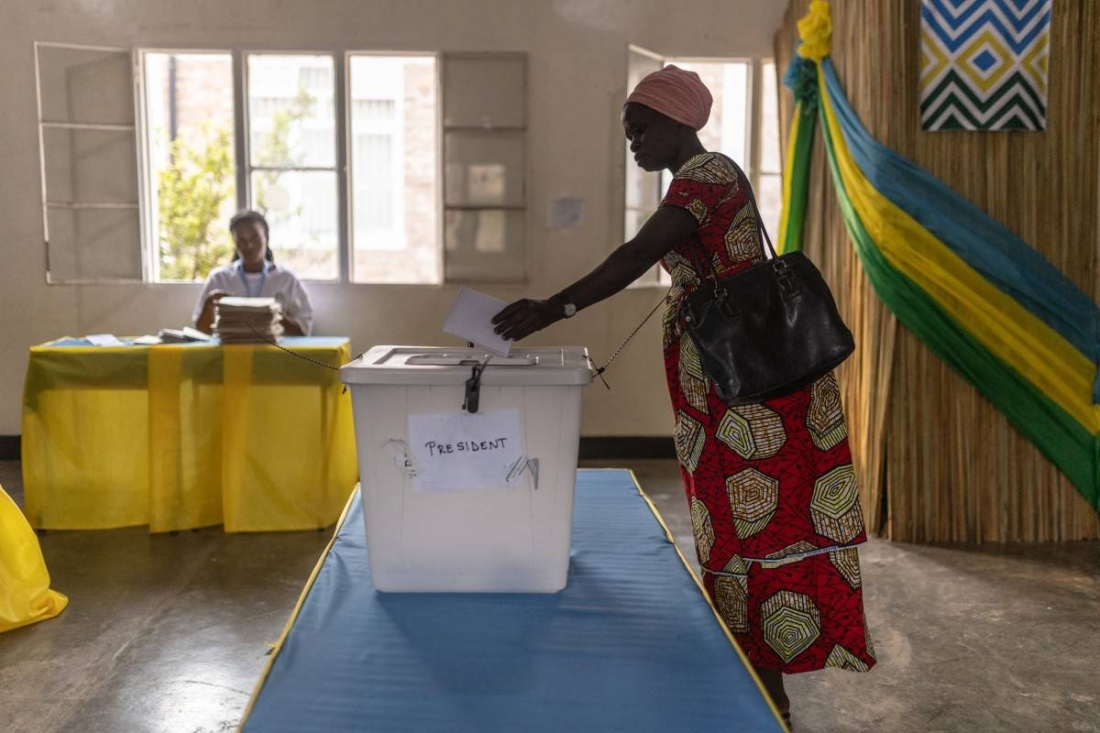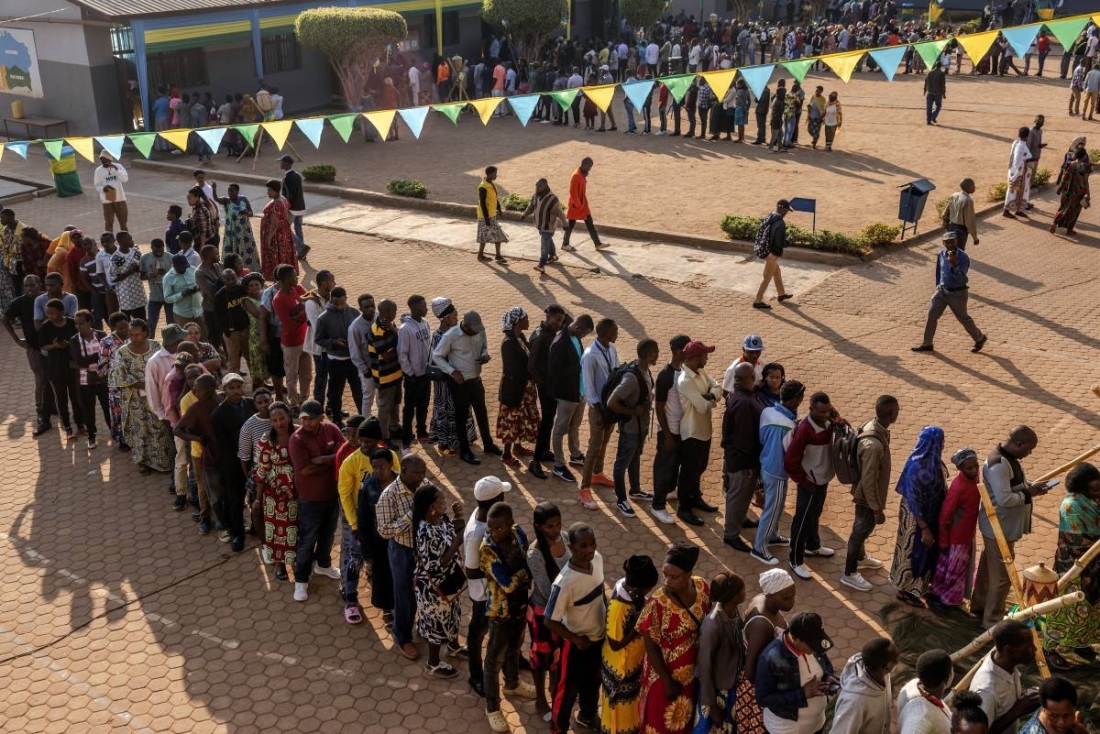9.7 million Rwandans are expected to vote this Monday, July 15, to elect their new president.
The Rwandan government has declared July 15 and 16 as public holidays to ensure the participation of all voters in the presidential and legislative elections. This decision aims to guarantee that every citizen can exercise their right to vote without work-related restrictions or constraints, in accordance with democratic principles, the Rwandan Ministry of Public Service and Labor stated, calling on all government institutions and private companies to comply with this decision.
The number of eligible voters stands at 9.7 million, out of an estimated population of about 13.5 million, according to the Commission. A total of 2,591 polling stations are dedicated to this double election.
Paul Kagame, the candidate of the Rwandan Patriotic Front (RPF), is facing Frank Habineza, the leader of the Green Democratic Party (opposition), and independent candidate Philippe Mpayimana. However, the incumbent president is well-positioned for re-election. Additionally, 500 candidates are running in the legislative elections, aiming to win 53 of the 80 parliamentary seats.

A decisive election
This year’s presidential and legislative elections are of particular importance for Rwanda, a country undergoing significant economic and social transformation. The voter turnout is expected to be high, reflecting the civic engagement of Rwandans. The government has implemented measures to ensure the transparency and security of the elections, including the presence of international observers and local electoral monitoring organizations.
The re-election of Paul Kagame, who has led Rwanda since the end of the genocide in 1994, is seen by many as a continuation of the country's stability and economic growth. Authorities have multiplied calls for electoral participation, emphasizing the importance of this moment for the country's future. Awareness campaigns have been conducted through media and social networks to encourage citizens to exercise their right to vote. The election results will be closely monitored, both nationally and internationally, with the hope that the electoral process will take place peacefully and transparently.











